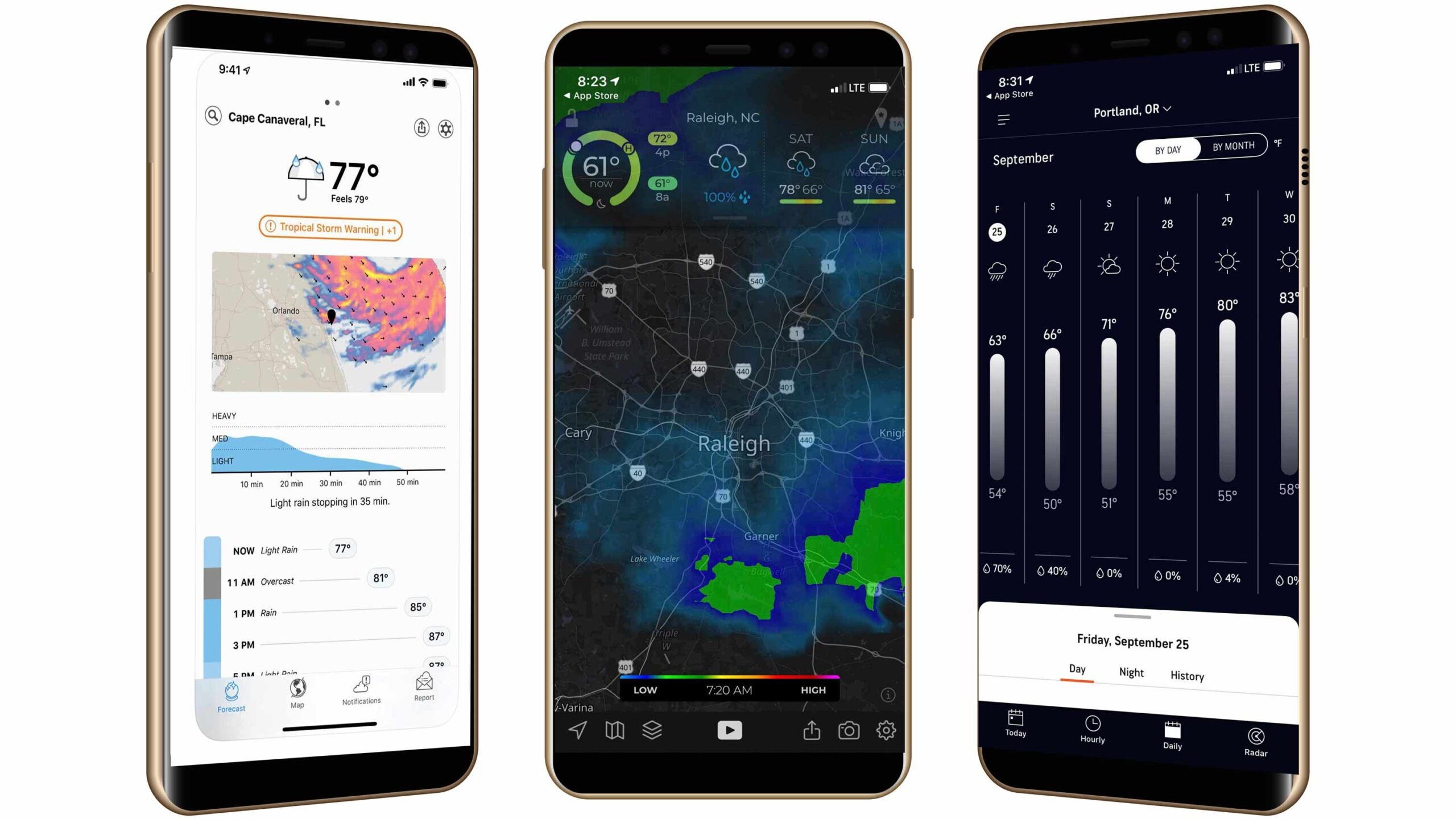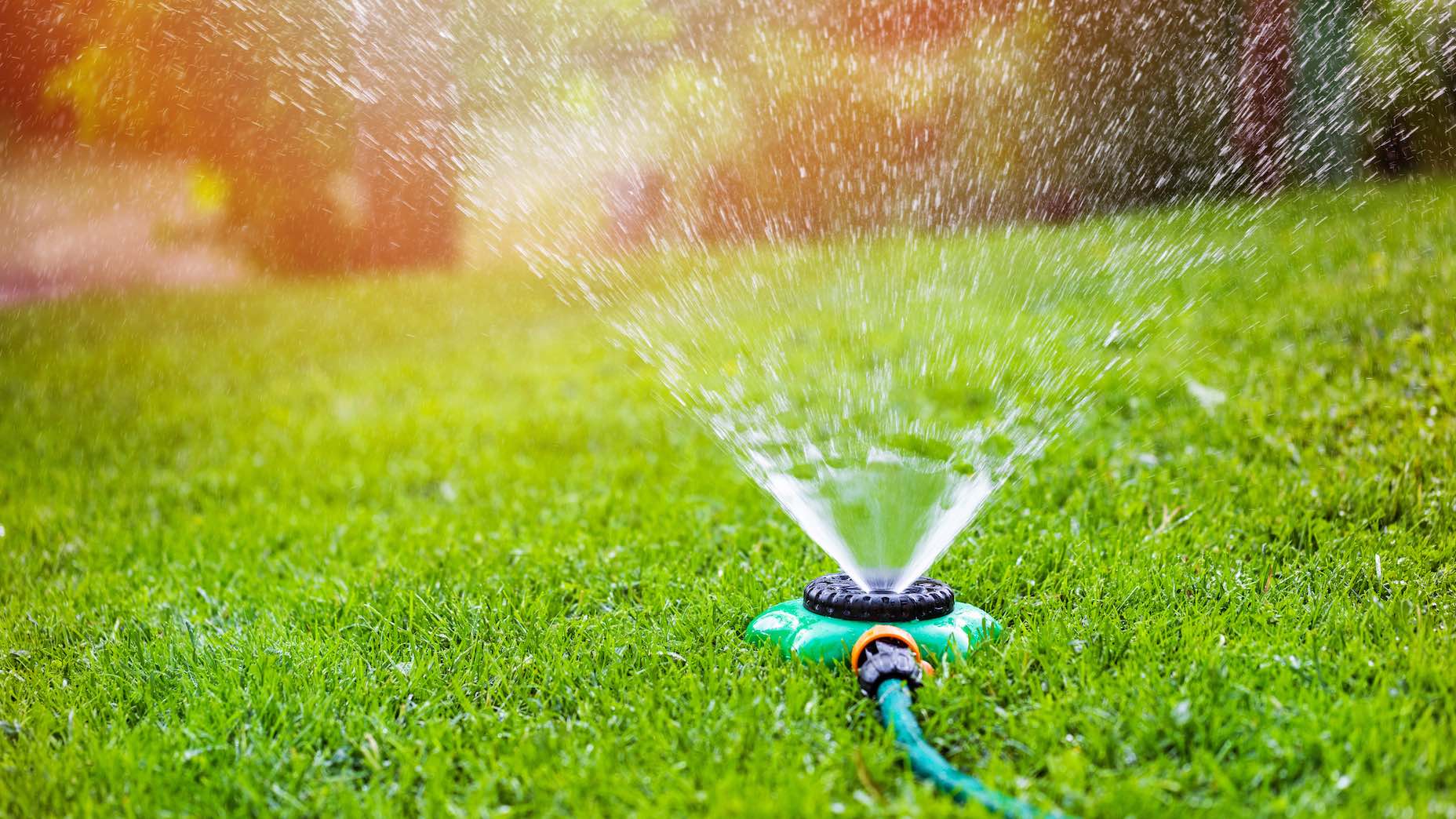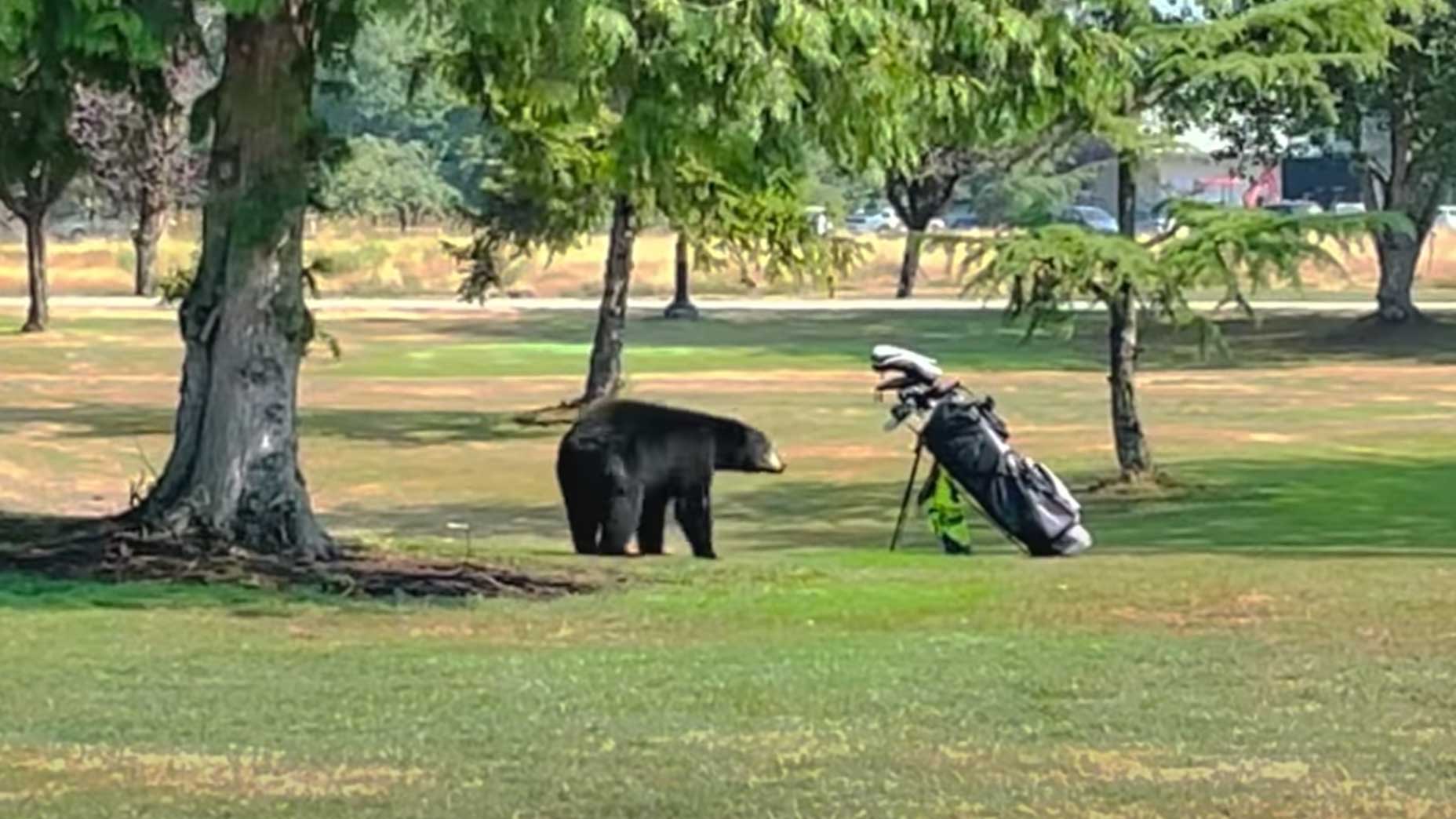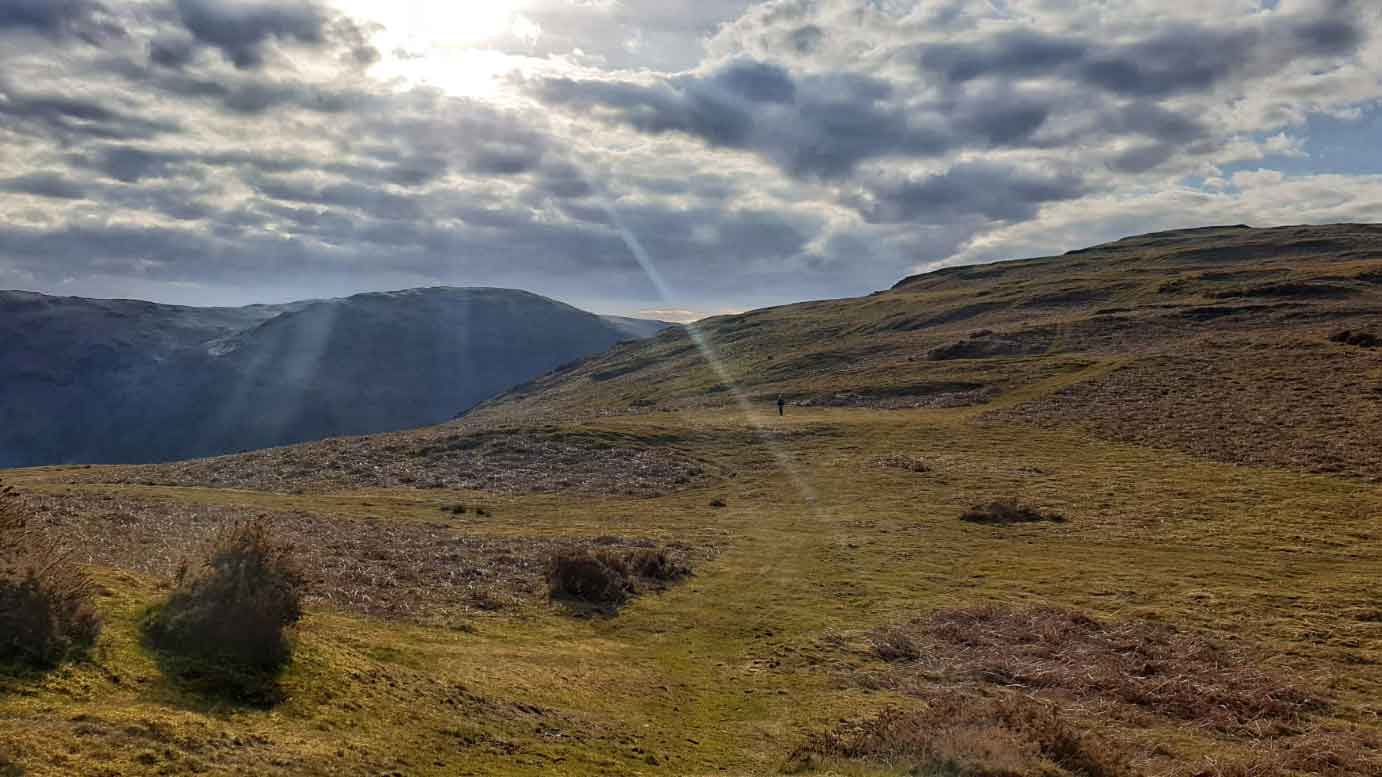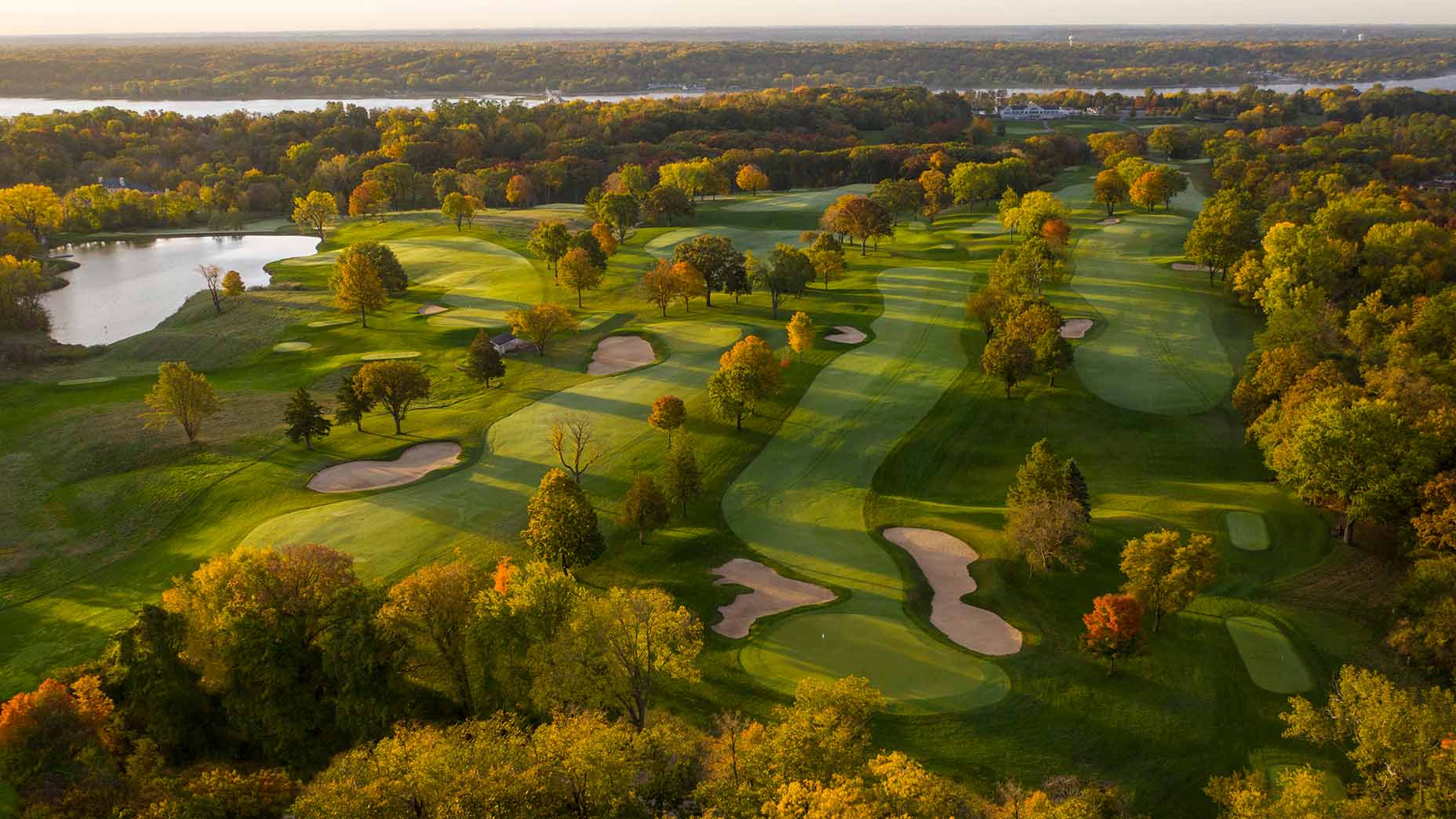All spring, companies like ours tracked numbers like “golf course openings” and considered the potential effects of the coronavirus on the industry. But as we learned more about the virus and about our collective response; one thing became more and more clear: golf had the potential to serve as an ideal quarantine outlet.
The whys are fairly intuitive. We’ve learned that staying outdoors means a lower risk of transmission, and golf is entirely outdoors. We’ve learned that keeping other people at a distance helps, too, and golf requires no real proximity. You can play golf alone, and you can play without ever going inside, and there’s a good chance you can play without driving too far from your home, too. Golf course operators had reasons to be cautiously optimistic that if they were able to reopen, golfers would flock to the fairways. And the numbers show that’s exactly what they’ve done.
All year, the National Golf Foundation has done excellent work tracking the effects of the coronavirus (which you can check out here!) on the golf industry. Their latest numbers show a massive uptick in play; U.S. golfers logged 20% more rounds in August 2020 than August 2019. The increase mark the fourth consecutive month with a year-over-year increase and underscores a trend: People are playing a lot of golf.
What does that mean? Let’s dive into Q&A mode to get all our burning questions taken care of.
What do the latest numbers tell us?
The latest report from Golf Datatech tracked August rounds at 20.6% up year over year, which means an increase of roughly 10 million rounds over 2019. That comes on the heels of a 13.9% increase in June and a 19.7% increase in July, which totals up to a three-month stretch of major growth — and 27 million more rounds played over that period than last year.
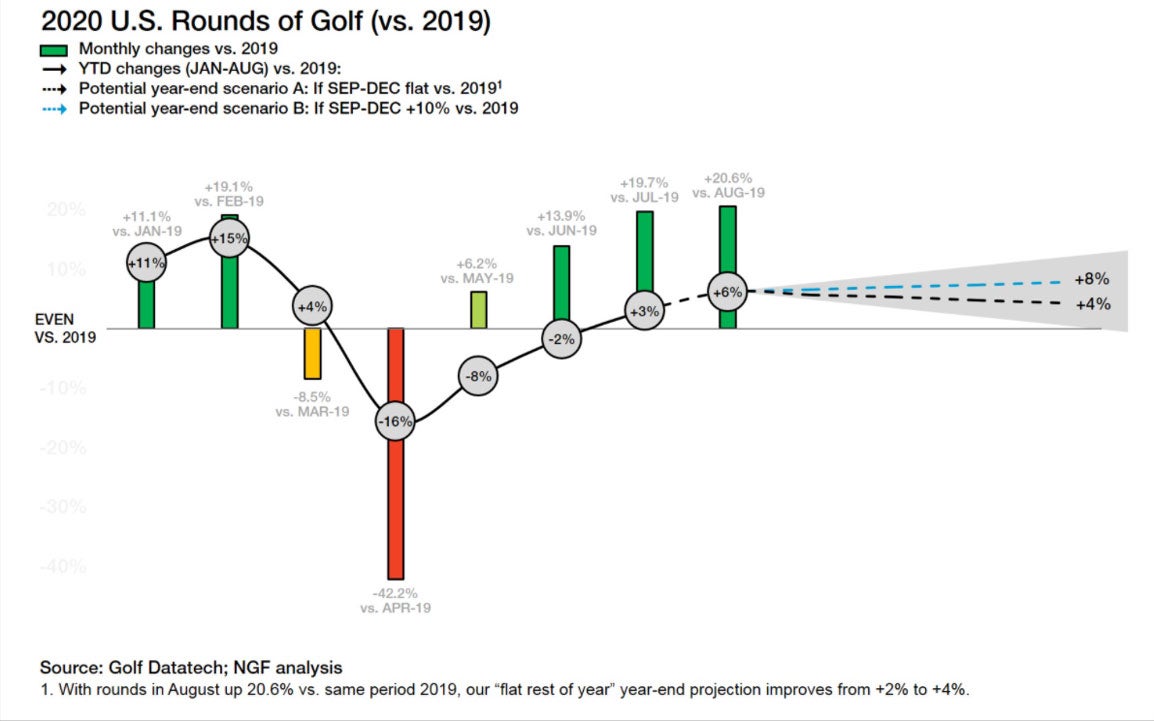
Which states saw the biggest gains?
Rounds in Texas were up 39%, rounds in Florida were up 37% and rounds in Arizona were up 31%, according to the NGF. Every state saw at least a 2% increase in rounds played.
What other factors are involved?
Plenty of golf’s growth can be directly attributed to the coronavirus: golf is safe, it’s distanced and people have fewer options available. But there are other factors to consider, too, including the weather. The NGF cited a warm, dry summer as partially responsible for the uptick in play, too.
“No doubt the weather has really cooperated,” NGF CEO Joseph Beditz wrote in an email.
But that comes with a caveat — the hot summer has given way to some extreme weather conditions in September, including wildfires in the West and severe storms and hurricanes hitting various large golf markets across the southern and eastern U.S.
What was the worst month for golf in 2020?
That would be April, when more than half of U.S. golf courses shut down for stretches and overall rounds plummeted by 42% year over year. At that point, despite a strong January and February, overall rounds were down 16% year over year.
The 5 best weather apps, according to golf-course superintendentsBy: Josh Sens
What will the overall change be from 2019 to 2020?
The gains of the last three months have brought the entire year’s numbers back into the black, and through August golf rounds were up 6% year over year. The NGF’s optimistic line of projections suggest that a strong finish to the year could mean an 8% rise year over year, while even a downturn over the last four months of 2020 would still likely result in a year-over-year gain of at least 2%.
Will new golfers stick around?
It’s hard to say. Retention seems to be the NGF’s main concern. Getting new golfers to stick around and keep playing has been “golf’s Achilles heel for some time now,” the study says. Increased exposure to the game hasn’t necessarily led to more people picking up golf in a serious way. As things get closer to “normal” over the coming months and years, it’s inevitable that some new golfers will return to their old activities — but we sure hope that some stick around and play.
Are people buying more golf stuff?
Are they ever! In August, consumers purchased $331 million worth of golf equipment, a 32% increase over August 2019 ($251 million). July marked an all-time record with $389 million in equipment sales.
Even with those massive increases, the retail market is still down 4.1% for the year, which serves as a good reminder that, rounds or not, every corner of the industry has faced plenty of challenges this year. For months, closed bars, restaurants, clubhouses, pro shops and amenities meant inevitable declines in revenue.
But in the last few months, things are trending in the right direction, which means that if you’re feeling the golf itch, we’ve got good news for you: you’re in good company.
You can check out more fascinating information from the NGF’s report here.

